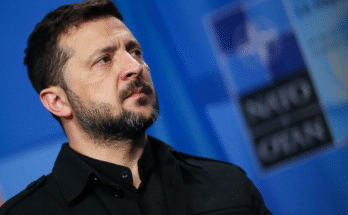BERLIN – In a surprising turn, U.S. President Donald Trump’s commitment to attend next week’s NATO summit in The Hague is already being hailed as a diplomatic victory by a senior German general. Maj. Gen. Stefan Schulz stated Thursday, June 19, 2025, that Trump’s intended participation “by itself can be considered a success,” despite widespread anxiety within the alliance about how he might reshape NATO.

Speaking at a policy forum, Schulz offered cautious optimism for the upcoming gathering. He noted that the summit would be a pared-down affair, featuring only one joint meeting and a “very concise and crisp” one-page statement, a departure from the usual lengthy communiqués. Yet, even with fewer words, the stakes remain incredibly high.
Germany’s primary objective for The Hague summit is to project unity and secure a firm commitment from all allies, including the U.S., to Article 5—NATO’s collective defense clause. Schulz emphasized, “It’s paramount to send a message of unity and strength.” This push for unity comes after Trump publicly cast doubt on the U.S. commitment to defend allies who he claims “don’t pay.”
Despite these concerns, Schulz downplayed any notion of a U.S. retreat from Europe, stating, “We have no signals that the U.S. wants to reduce their commitment to NATO.” He underscored the continued critical importance of U.S. nuclear deterrence for European non-nuclear nations.
The true focus of the summit will be on defense budgets. Secretary-General Mark Rutte has already signaled a new spending pledge: 5 percent of GDP, split between 3.5 percent for traditional military spending and 1.5 percent for broader strategic needs like infrastructure and counter-hybrid threats.
However, Schulz stressed that percentages alone won’t win wars. He highlighted NATO’s new, top-secret “capability targets”—operational objectives that will drive national defense spending decisions. “Our key focus is on implementing the capability targets and improving the warfighting readiness of the Bundeswehr,” he affirmed, noting these new targets are “much more demanding” than those set before Russia’s full-scale invasion of Ukraine.
To meet these ambitious targets, Germany is actively rethinking its military manpower model. Defense Minister Boris Pistorius aims to recruit up to 60,000 additional active troops, boosting the Bundeswehr’s size to around 260,000. Under a proposed framework, modeled partly on Sweden’s system, 18-year-old men would complete a survey to gauge their readiness and willingness to serve. Schulz clarified that this “will not be the return of the old mandatory conscription for the time being,” though he acknowledged a growing domestic debate on the topic. The plan’s effectiveness remains to be seen, as conservative MP Thomas Erndl has suggested that “compulsory elements will have to be introduced” if personnel needs aren’t met voluntarily.


